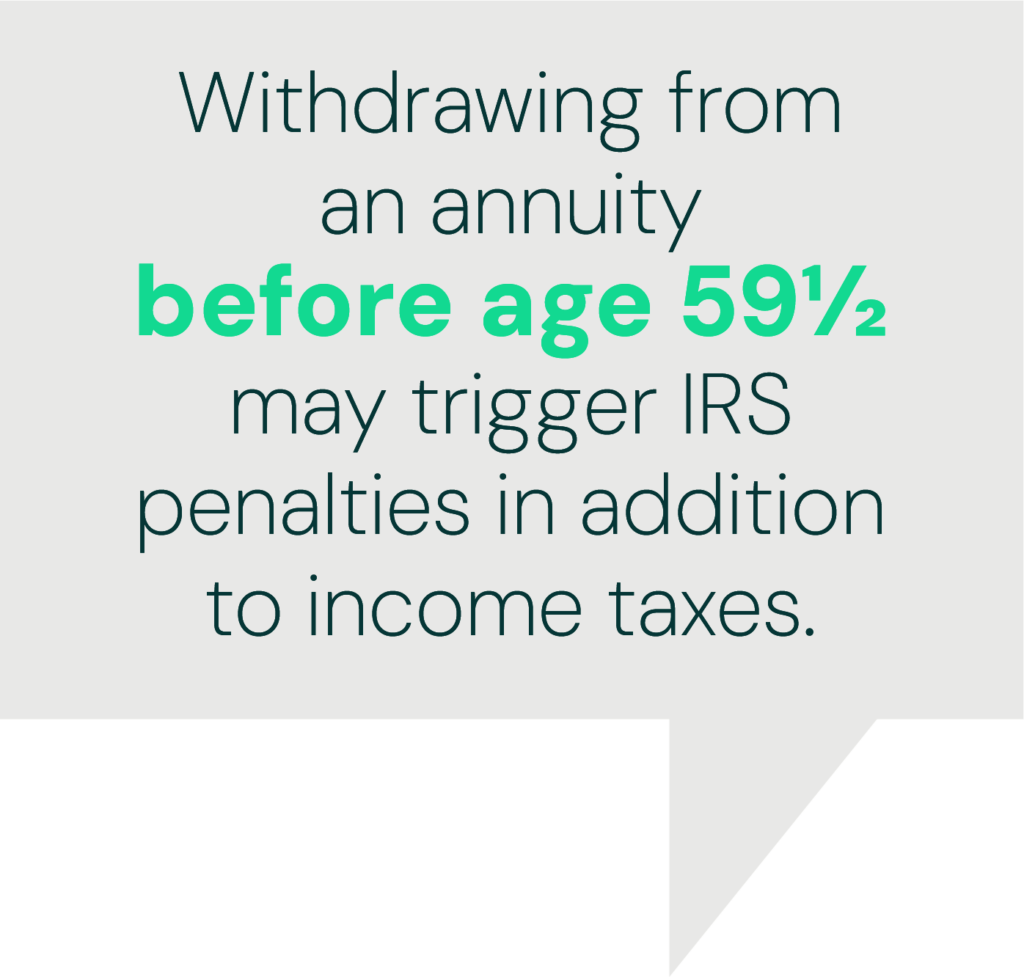
The Power of Tax Deferral: How It Can Boost Your Retirement Savings
Most investments get taxed every year. That means the IRS takes a portion of your gains before that money has a chance to grow.
But what if that money could continue compounding over time—and delay the tax bill until you start taking withdrawals later in life — ideally when you are retired and in a lower tax bracket.
That’s what tax-deferred annuities can offer.
How Tax Deferral Works in Annuities
Because annuities are designed for long-term savings strategies, tax deferral allows your earnings to grow without annual reductions for taxes. Over time, this uninterrupted compounding can lead to a higher total balance than a comparable taxable investment.
However, tax deferral also means you have less access to your money before retirement. Withdrawing from an annuity before age 59½ may trigger IRS penalties in addition to income taxes. That’s why annuities are best suited for individuals who don’t need immediate liquidity and want to build a future income stream.

Key Benefits of a Tax-Deferred Annuity
- Maximized growth potential – More of your money stays protected longer, benefiting from compounding.
- Flexibility in tax timing – You control when to take withdrawals, potentially lowering your tax burden.
- Predictable retirement income – Many annuities offer options to convert retirement savings into a guaranteed* lifetime income.
While tax deferral is a powerful tool, it’s important to weigh all your options.
Who Should Consider a Tax-Deferred Annuity?
A tax-deferred annuity may be a smart choice if you:
- Want to take advantage of compounded growth over time
- Expect to be in a lower tax bracket in retirement
- Are putting aside money for retirement but don’t need income immediately
Keep More of What You Earn
Tax deferral can be a game-changer when it comes to retirement savings.
By allowing your money to grow tax-deferred, you can take advantage of compounding and maximize growth potential in your annuity.
Want to see how an annuity could fit into your retirement strategy?
Talk to a financial professional today to explore your options.
Don’t have a financial professional? Learn more here.

Related Posts

What Is a Fixed Annuity? Why One Size Doesn’t Fit All
Many consumers hear one story or try one type of annuity and form a negative opinion. But not all annuities are the same. In fact, fixed annuities can be tailored to fit a wide variety of retirement needs.

Do I need a financial professional? Here’s When It Makes Sense
Many people wonder whether managing their own finances is enough or if they should seek expert guidance. While some financial decisions can be…

